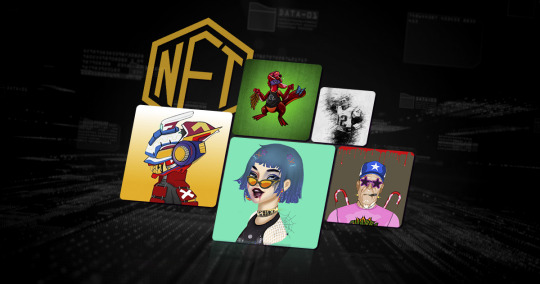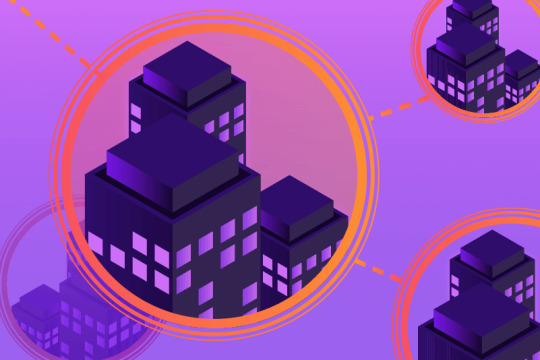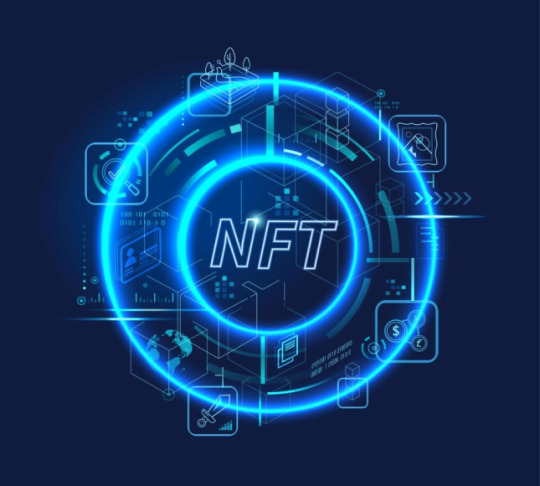Text
Enterprise Blockchain Solutions Developemnt
Enterprise blockchain solutions development involves creating and implementing blockchain-based systems to address specific business needs within an organization or across multiple organizations in a network. Here are the key steps involved in developing enterprise blockchain solutions:
Identify Use Case: The first step is to identify a use case where blockchain technology can bring value to the organization. This could include areas such as supply chain management, decentralized identity, financial transactions, smart contracts, or data sharing.
Define Requirements: Once the use case is identified, it's important to define the specific requirements of the blockchain solution. This includes determining the desired functionality, performance metrics, security measures, and integration points with existing systems.
Choose the Right Blockchain Platform: There are several blockchain platforms available, such as Ethereum, Hyperledger Fabric, Corda, and Quorum. Selecting the appropriate platform depends on factors like scalability, privacy requirements, consensus mechanism, and development tools.
Design the Architecture: Design the blockchain architecture based on the selected platform. This involves defining the network structure, consensus mechanism, data model, smart contract design, and integration points with external systems.
Develop Smart Contracts: Smart contracts are self-executing contracts with predefined rules encoded on the blockchain. Develop and test the smart contracts that automate and enforce the desired business logic and rules.
Build the Network: Set up the blockchain network based on the chosen platform. This includes deploying the necessary nodes, establishing network connectivity, configuring security measures, and defining access controls.
Integrate with Existing Systems: Integrate the blockchain solution with existing enterprise systems to ensure seamless data exchange and interoperability. This may involve connecting with APIs, legacy systems, databases, or other third-party applications.
Implement Consensus Mechanism: Configure and deploy the consensus mechanism that governs how transactions are validated and added to the blockchain. The choice of consensus algorithm depends on factors such as network scalability, security, and trust requirements.
Test and Deploy: Thoroughly test the developed solution to ensure its functionality, security, and performance. Conduct unit tests, integration tests, and end-to-end tests to identify and fix any issues. Once the solution is deemed ready, deploy it to the production environment.
Monitor and Maintain: Continuously monitor the blockchain network for performance, security, and reliability. Regularly update and maintain the solution to address any bugs, security vulnerabilities, or evolving business requirements.
It's important to note that developing enterprise blockchain solutions requires expertise in blockchain technology, smart contract development, security, and integration with existing systems. Organizations often work with experienced blockchain development teams or engage with blockchain consulting firms to ensure successful implementation.
0 notes
Text
Top 10 NFT Marketplace Development companies in 2023
NFT marketplaces have become the primary platforms for artists, creators, and collectors to exhibit and sell their digital works. With the NFT explosion in recent years, businesses are seeking to establish their presence in the NFT marketplace development industry. This niche field requires in-depth knowledge of blockchain technology, smart contracts, and tokenization.
Only a select few companies possess the expertise and resources to construct cutting-edge NFT marketplaces. In this blog post, we will introduce you to the leading NFT marketplace development companies, outline their services, and highlight what sets them apart from competitors. If you're considering NFT marketplace development, continue reading to discover the ideal company for your requirements.
Read more on top 10 nft marketplace development companies in 2023 here
0 notes
Text
White Label NFT Marketplace Development

White label NFT marketplace development refers to the process of creating a customizable and branded NFT marketplace platform that can be used by different individuals or organizations under their own branding. It allows businesses or entrepreneurs to launch their own NFT marketplaces without investing extensive resources in building a platform from scratch.
Read more on white label NFT marketplace development here
0 notes
Text
NFT Real Estate Marketplace Development

An NFT Real Estate Marketplace is a platform that facilitates the buying, selling, and trading of real estate assets using Non-Fungible Tokens (NFTs) on a blockchain network. Here's an overview of how an NFT Real Estate Marketplace works.
Read more on NFT real estate marketplace development here
0 notes
Text
A Complete Guide On NFT Real Estate Marketplace
The rise of Non-Fungible Tokens (NFTs) has brought about significant changes across various industries, including real estate. This blog explores the fascinating world of NFT real estate marketplaces, their increasing popularity, and the transformative impact they have on buying, selling, and managing properties.
What is NFT Real Estate? NFT Real Estate involves integrating Non-Fungible Tokens (NFTs) into the real estate industry. NFTs are unique digital assets that represent ownership or proof of authenticity of specific items, such as real estate properties. Unlike traditional transactions, NFT Real Estate revolves around the creation and trading of virtual representations of properties on blockchain-based platforms.
How Does Real Estate NFT Work? Real Estate NFTs leverage blockchain technology to establish ownership and authenticity of virtual properties. The process includes creating NFTs that represent specific properties, tokenizing the assets into unique units, listing them on NFT marketplaces, conducting transactions using cryptocurrencies, and receiving digital certificates as proof of ownership. NFT owners can trade, sell, and interact with their virtual properties through specialized platforms or virtual reality environments.
Benefits and Potential of NFT Real Estate: NFT Real Estate Marketplaces offer several advantages and opportunities, including fractional ownership, enhanced liquidity, global accessibility, increased transparency and security, and innovative user experiences through virtual reality or augmented reality environments. These marketplaces open up investment possibilities, streamline transactions, and foster a diverse global community of real estate investors.
Key Players and Popular NFT Real Estate Marketplaces: Notable NFT real estate marketplaces include Decentraland, a decentralized virtual world allowing users to buy, sell, and develop virtual land parcels; CryptoVoxels, a platform for buying, selling, and building on virtual land; and The Sandbox, a blockchain-based virtual world where users can create, own, and monetize virtual assets, including real estate.
Conclusion: NFT real estate marketplaces are transforming the way properties are bought, sold, and managed by introducing virtual ownership through NFTs. These marketplaces offer unique benefits, such as fractional ownership, enhanced liquidity, and global accessibility. As the industry evolves, more opportunities and advancements are expected, making NFT real estate an exciting and innovative space to explore.
0 notes
Text
White Label NFT Marketplace
A white-label NFT marketplace refers to a ready-made platform that can be customized and rebranded by businesses or individuals to create their own NFT marketplace. It offers a turnkey solution, allowing users to avoid the complexities and costs associated with building a marketplace from scratch.
With a white-label NFT marketplace, the core functionality and features are already developed and provided by the platform provider. This includes features like token minting, smart contract integration, user wallets, trading interfaces, and payment gateways. The marketplace can be tailored to match the branding and specific requirements of the client, such as incorporating their logo, color scheme, and additional customizations.
By using a white-label NFT marketplace, businesses or individuals can save time and resources on development and focus more on building their user base and growing their marketplace. It offers a faster time-to-market solution and allows them to take advantage of the growing popularity of NFTs without the need for extensive technical expertise.
Some white-label NFT marketplace providers offer additional services such as hosting, maintenance, and technical support, ensuring the smooth operation of the marketplace. It's important to choose a reliable and reputable provider that offers robust security measures and has a good track record in the industry.
Overall, a white-label NFT marketplace can be an efficient solution for those looking to enter the NFT space quickly and with a customized platform that aligns with their branding and business goals.
#nftmarketplace#nft#web3#nftcommunity#ethereum#nftdrop#nftgallery#nft news#nftcollectibles#digitalcurrency#defi
1 note
·
View note
Text
NFT Real Estate Marketplace
An NFT (Non-Fungible Token) real estate marketplace is a platform where users can buy, sell, and trade digital assets representing ownership or rights to virtual properties or real estate. NFTs have gained popularity in various industries, including art, collectibles, and gaming, and now they are being explored for applications in the real estate sector.
In an NFT real estate marketplace, individuals can tokenize real-world properties by creating unique digital assets that represent ownership or access rights. These NFTs can include information about the property, such as location, size, images, and other relevant details. They can also incorporate smart contracts that define the terms and conditions of ownership, including potential royalties or revenue sharing.
Buyers can browse the marketplace and purchase NFTs representing virtual properties or real estate. Once the purchase is made, the buyer becomes the owner of the corresponding NFT, which grants them the associated rights or benefits. These may include virtual experiences, access to exclusive events or spaces, virtual rentals, or even potential real-world benefits like revenue sharing from the property.
NFT real estate marketplaces provide a new way to invest in and interact with properties, allowing individuals to participate in the digital real estate market. However, it’s important to note that the concept is still relatively new, and regulatory frameworks and legal implications surrounding NFT-based real estate transactions are still being developed in many jurisdictions.
As with any investment or purchase, it’s crucial to conduct thorough research, consider the associated risks, and understand the terms and conditions before engaging in transactions on an NFT real estate marketplace.
#nft#nftcollector#nftproject#nftcollection#web3#digitalcurrency#nftcommunity#nftmagazine#ethereum#defi
0 notes
Text
Top Blockchain Development Companies
I have curated a list of reputable blockchain development companies in India that have showcased notable proficiency in developing cryptocurrency coins, Bitcoin, and blockchain-based applications. These companies provide comprehensive blockchain solutions, encompassing application development services and wallets, catering to enterprises of all types.
Click here to know the top blockchain development companies
0 notes
Text
Revolutionizing Real Estate: NFT Marketplace Development
In recent years, the world of real estate has witnessed a remarkable transformation through the advent of Non-Fungible Tokens (NFTs). These unique digital assets, powered by blockchain technology, have opened up new possibilities for property ownership, trading, and investment. NFT real estate marketplaces are emerging as innovative platforms that allow users to buy, sell, and trade digital representations of real properties. This article explores the exciting realm of NFT real estate marketplace development, shedding light on its features, benefits, and the steps involved in creating such a platform.
The Power of NFTs in Real Estate:
Non-Fungible Tokens bring several advantages to the real estate industry. By tokenizing real properties, NFTs enable fractional ownership, allowing investors to purchase fractions or shares of a property. This opens up access to real estate investments for a broader audience, including those with limited capital. NFTs also enhance liquidity by enabling seamless and secure transfers of property ownership through blockchain technology. Furthermore, NFTs provide transparency and traceability by recording ownership history and property details on the blockchain, reducing fraud and enhancing trust.
Key Features of an NFT Real Estate Marketplace:
Property Listings: NFT marketplaces offer a platform where property owners can list their real estate assets as unique tokens. These listings include detailed property information, images, and legal documentation, providing potential buyers with comprehensive information.
Auctions and Bidding: NFT real estate marketplaces often incorporate auction mechanisms that allow users to participate in bidding processes. This feature adds excitement and competitiveness to the platform, enabling users to acquire properties through dynamic bidding.
Fractional Ownership: Some NFT marketplaces enable fractional ownership of properties, dividing them into shares or tokens. This allows investors to purchase a fraction of a property, opening up real estate investments to a wider audience and providing liquidity options.
Secondary Market Trading: NFTs can be traded and resold on secondary markets within the marketplace. This feature enables users to sell their NFT properties and provides opportunities for investors to acquire properties that were previously owned by other users.
Secure Transactions: NFT real estate marketplaces leverage blockchain technology to ensure secure transactions. Smart contracts govern the transfer of ownership, ensuring that the buyer receives the NFT property upon successful completion of the transaction.
Royalties and Commissions: Smart contracts can be designed to incorporate royalty and commission structures, allowing property creators or platform operators to receive a percentage of future sales when their NFT properties are traded or resold.
Conclusion
NFT real estate marketplaces leverage blockchain and NFT technology to transform property ownership and transactions. These platforms offer fractional ownership, liquidity, and transparency. With features like listings, auctions, and secure transactions, they provide a novel way to invest and trade in digital real estate assets. By prioritizing user experience and innovation, NFT real estate marketplaces have the potential to reshape the industry and make it more accessible and efficient. Trust, security, and compliance are crucial for their success as this market continues to evolve. If you also want to build a NFT real estate marketplace then contact us now.
0 notes
Text
What is NFT Development ?

Earning through NFT development refers to the process of generating income by creating and selling non-fungible tokens (NFTs). NFTs are exclusive digital assets stored on a blockchain that enable ownership and transferability. They have emerged as a novel way of buying, selling, and collecting digital content such as art, music, and videos.
To earn income from NFT development, individuals or companies can create and sell their own NFTs by designing and minting unique digital assets, which are then listed for sale on various NFT marketplaces. When a buyer purchases an NFT, the seller receives payment in cryptocurrency, which can be exchanged for fiat currency or other goods and services.
Besides creating original digital assets, NFT development can also be used to monetize existing digital content. For instance, a musician could create NFTs of their music and sell them as unique collectibles to fans. Similarly, a game developer could create NFTs of in-game assets and sell them to players who want to own a part of the game.
Overall, a move to earn NFT development is a trendy way for creators and businesses to generate income in the digital economy.
If you also want to develop NFT Marketplace then contact us now.
1 note
·
View note